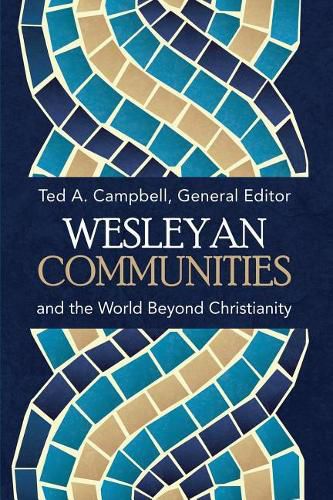Readings Newsletter
Become a Readings Member to make your shopping experience even easier.
Sign in or sign up for free!
You’re not far away from qualifying for FREE standard shipping within Australia
You’ve qualified for FREE standard shipping within Australia
The cart is loading…






Methodism is a discipleship movement built for engagement. Contributors: Cheryl B. Anderson, Ted A. Campbell, William Gibson, Rui de Souza Josgrilberg, Beauty Maenzanise, and Stephen Skuce
Wesleyan and Methodist communities have sensed a calling not only to Christian renewal within their own circles but also to engage with and to serve the broader world around them. Even in the eighteenth century, this meant engagement with non-Christian peoples, as illustrated in John Wesley’s interviews with Native American people in Georgia, but it also meant engagement with persons and institutions that had no explicit connection to Christianity or to any other traditional religious traditions. John Wesley’s Primitive Physick serves as an illustration of his intention to do good beyond the confines of explicitly Christian communities.
The thirteenth Oxford Institute of Methodist Theological Studies met at Christ Church, Oxford, in 2013, to consider Wesleyan Communities and the World Beyond Christianity. The leaders of the Institute were clear from the beginning that by the world beyond Christianity, we did not mean only our engagement with non-Christian peoples, but also our engagement with governments, with non-governmental organizations, and other ways in which Wesleyan communities have interacted with individuals and communities who do not explicitly profess Christian faith. The plenary papers from the Institute included in this volume illustrate this range of Wesleyan and Methodist interaction with worlds beyond Christianity.
$9.00 standard shipping within Australia
FREE standard shipping within Australia for orders over $100.00
Express & International shipping calculated at checkout
Methodism is a discipleship movement built for engagement. Contributors: Cheryl B. Anderson, Ted A. Campbell, William Gibson, Rui de Souza Josgrilberg, Beauty Maenzanise, and Stephen Skuce
Wesleyan and Methodist communities have sensed a calling not only to Christian renewal within their own circles but also to engage with and to serve the broader world around them. Even in the eighteenth century, this meant engagement with non-Christian peoples, as illustrated in John Wesley’s interviews with Native American people in Georgia, but it also meant engagement with persons and institutions that had no explicit connection to Christianity or to any other traditional religious traditions. John Wesley’s Primitive Physick serves as an illustration of his intention to do good beyond the confines of explicitly Christian communities.
The thirteenth Oxford Institute of Methodist Theological Studies met at Christ Church, Oxford, in 2013, to consider Wesleyan Communities and the World Beyond Christianity. The leaders of the Institute were clear from the beginning that by the world beyond Christianity, we did not mean only our engagement with non-Christian peoples, but also our engagement with governments, with non-governmental organizations, and other ways in which Wesleyan communities have interacted with individuals and communities who do not explicitly profess Christian faith. The plenary papers from the Institute included in this volume illustrate this range of Wesleyan and Methodist interaction with worlds beyond Christianity.